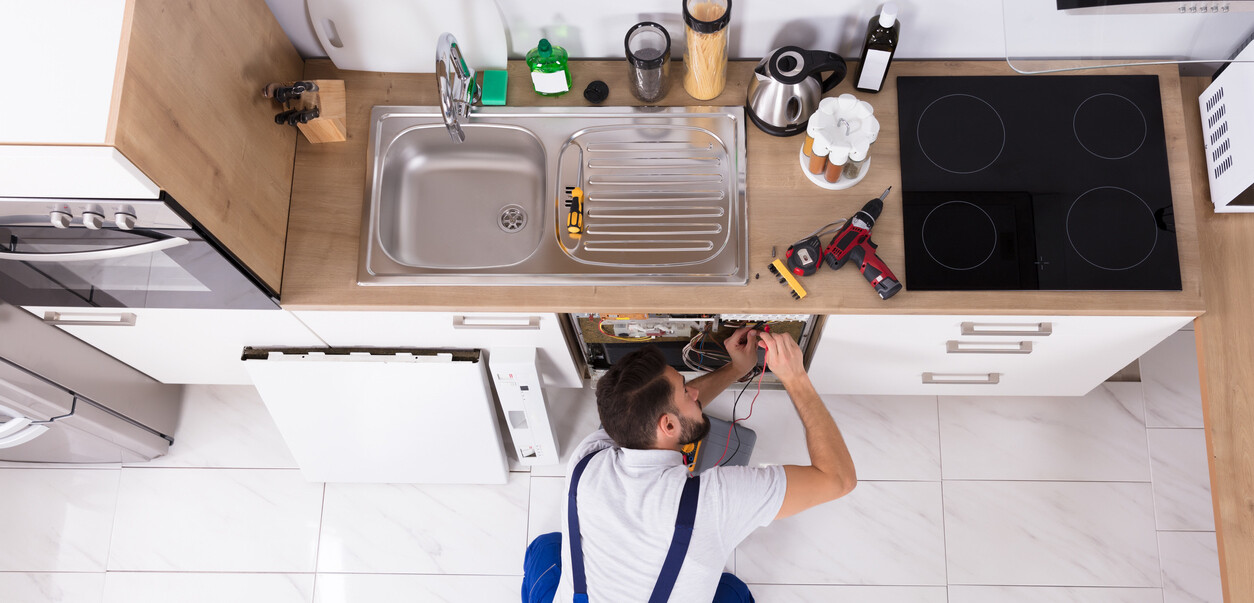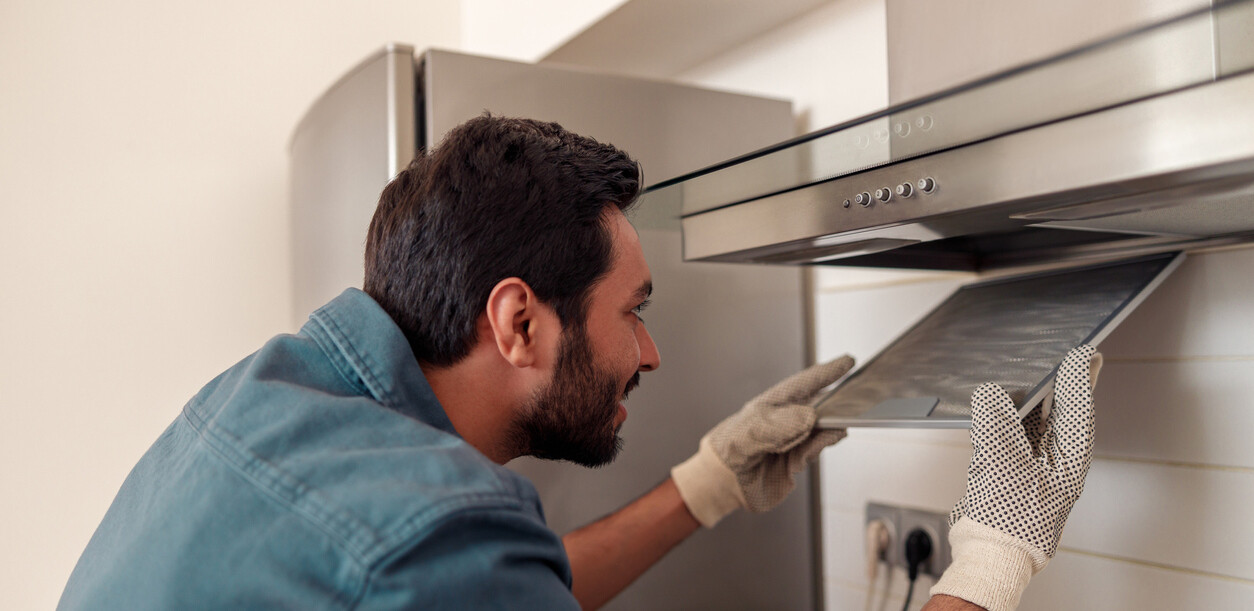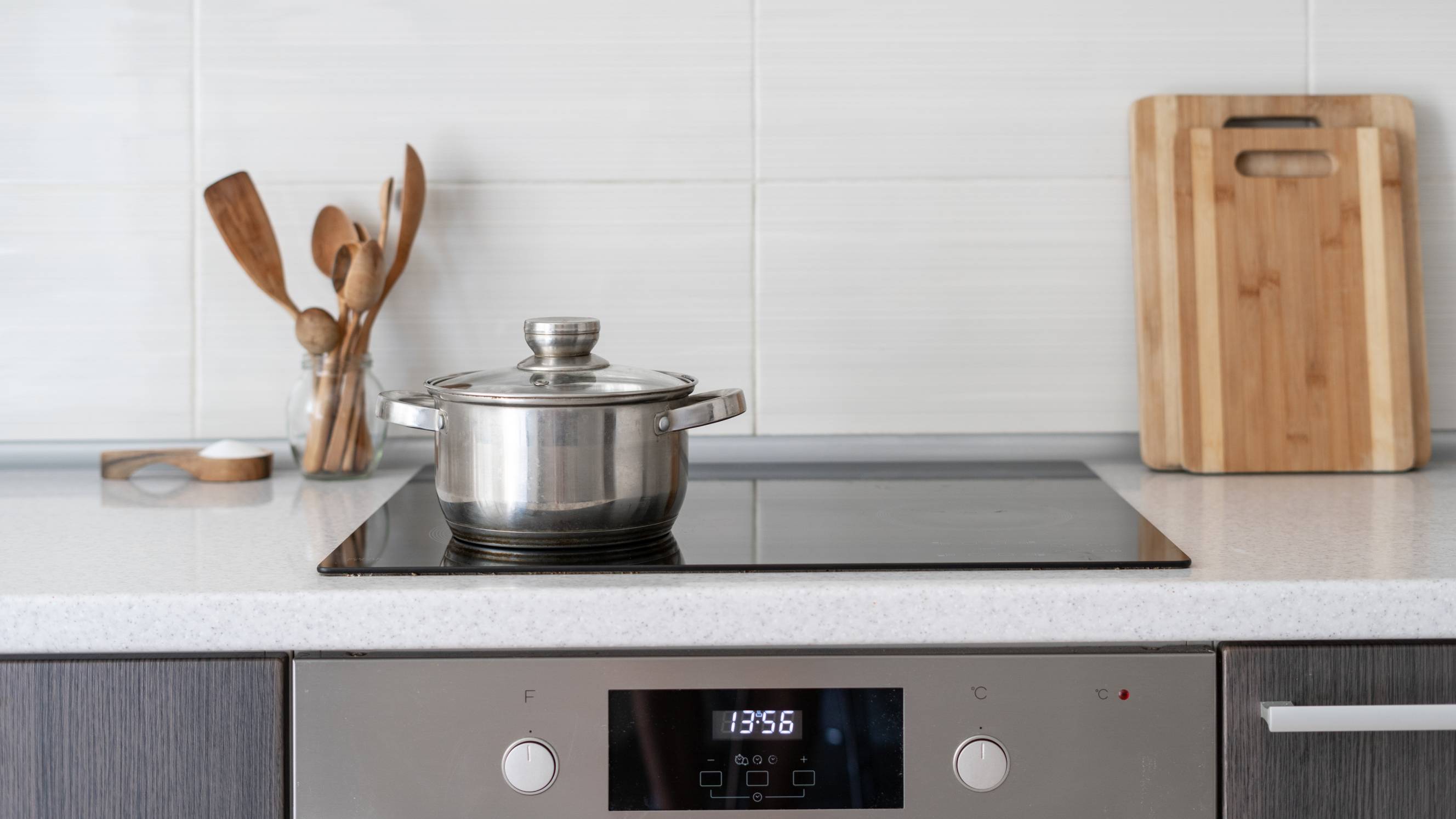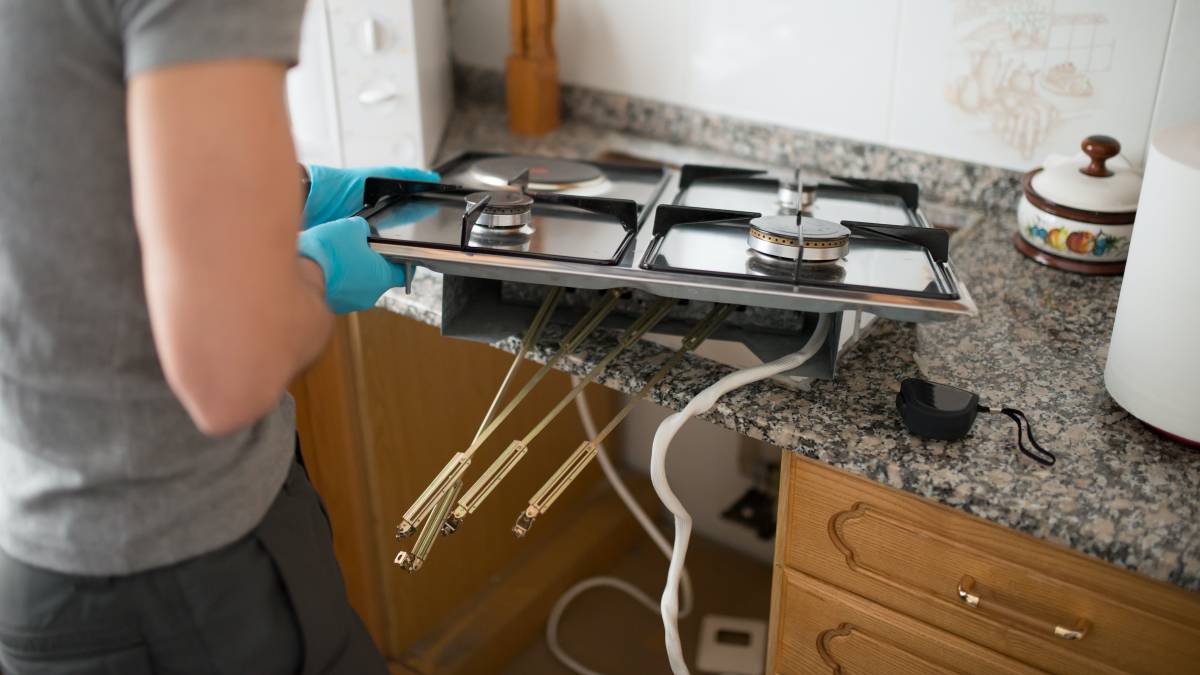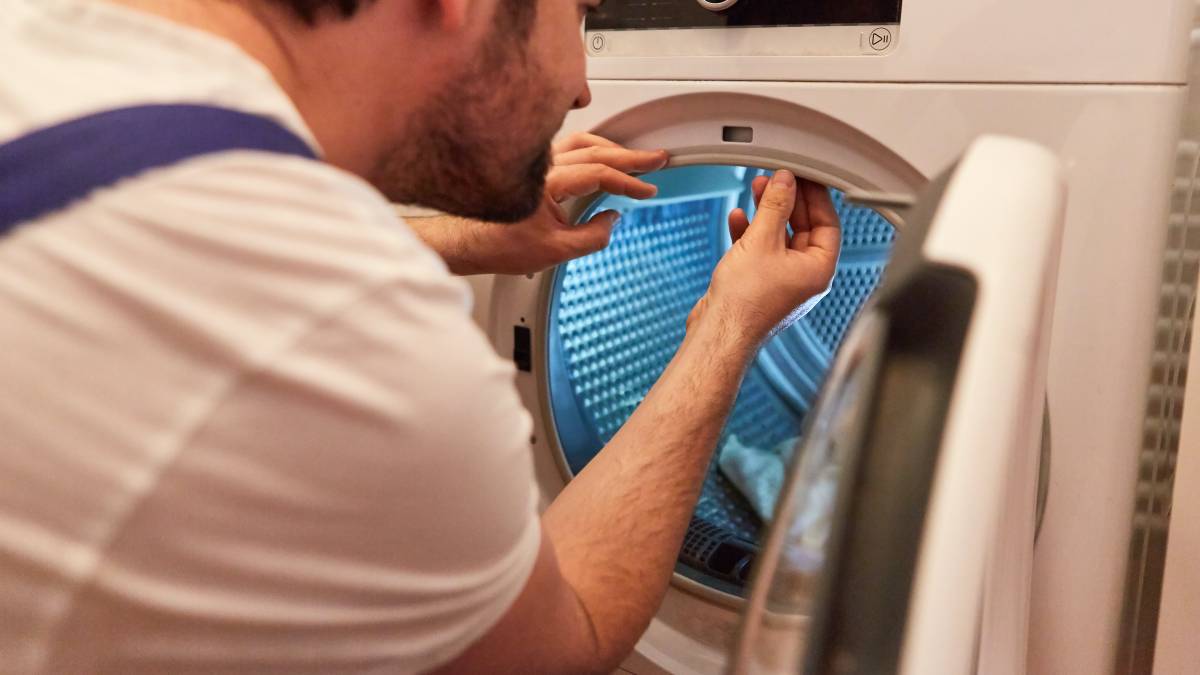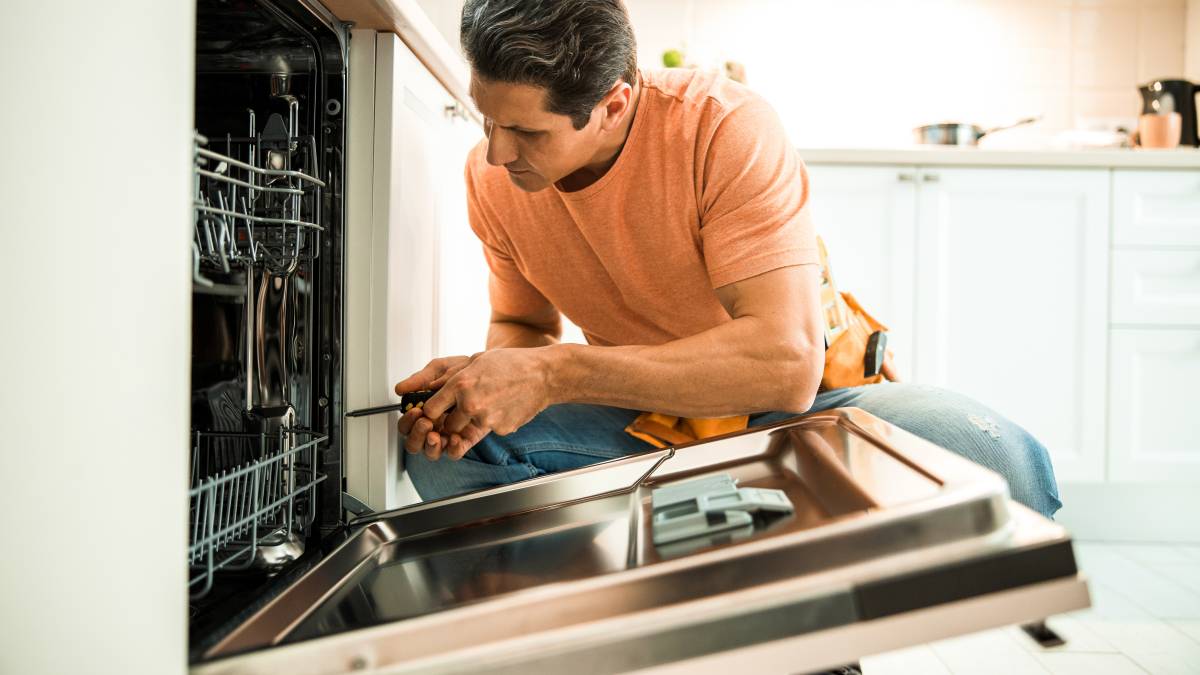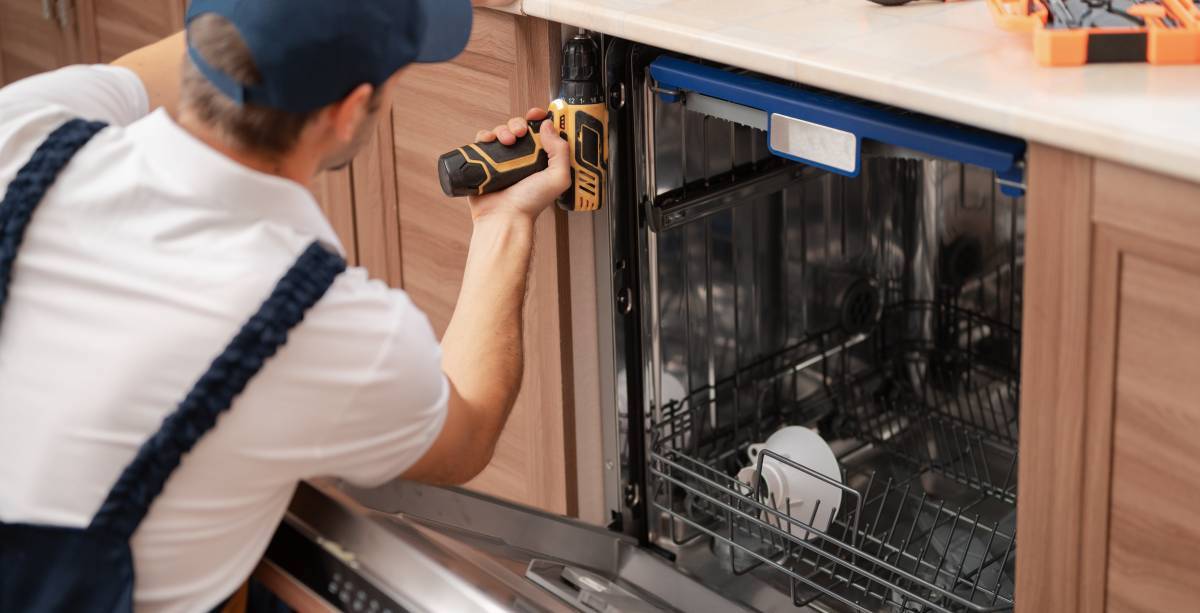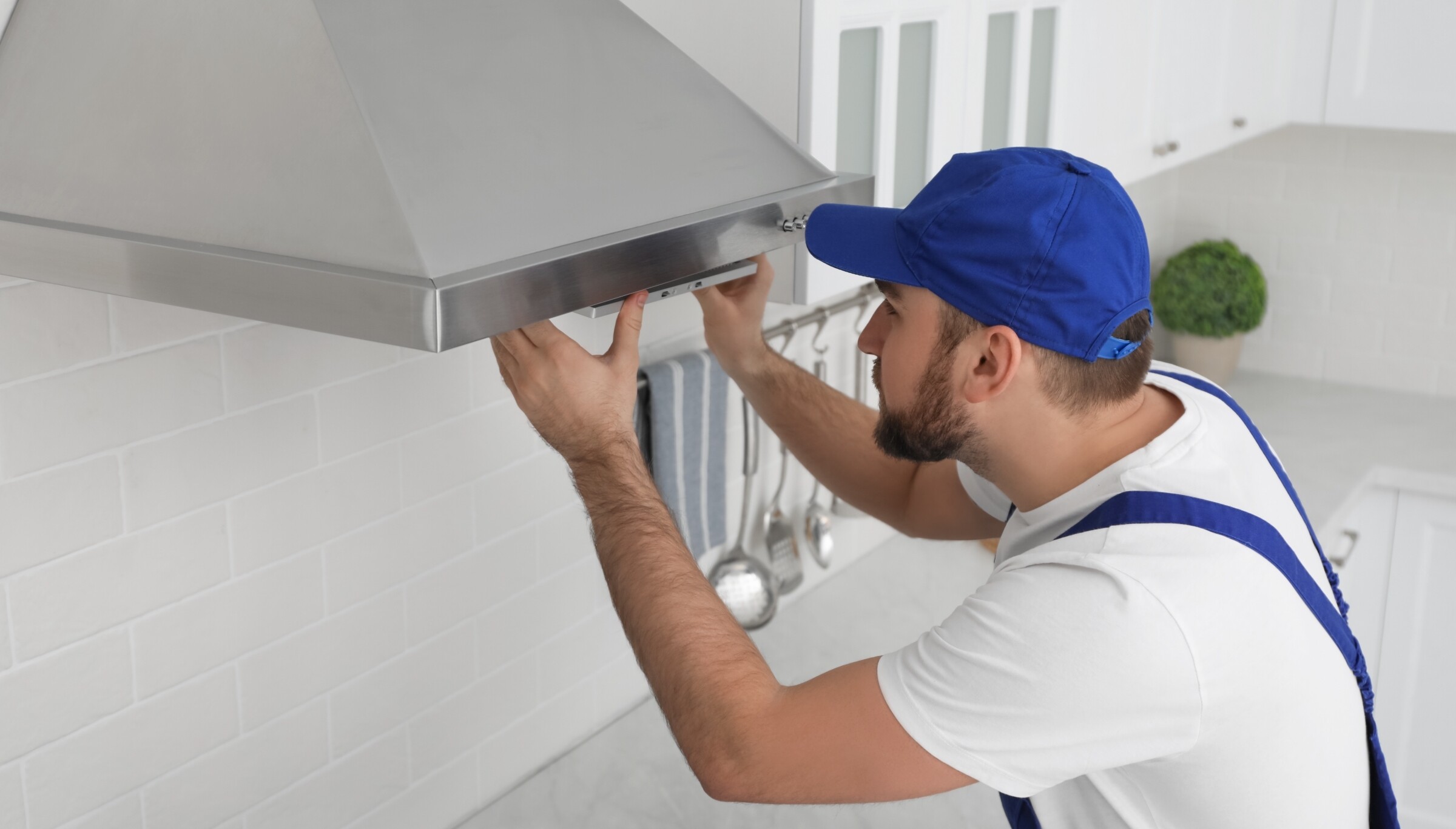- Home/
- Comparisons/
- Appliance Installation/
- Gas vs Electric Range

Gas vs electric range: Which fits your kitchen needs?
Comparing gas and electric ranges based on cost, energy efficiency, cooking performance, and more.
Hire an appliance installerPublished on
Key Facts
- A gas range is a cooking appliance powered by natural gas or propane.
- An electric range is a kitchen device that uses electrical resistance to generate heat.
Choosing the right range for your kitchen can make or break your cooking experience. Whether you're a foodie or a budget-conscious chef looking for efficiency and savings, the choice between gas vs electric range is the one you can't afford to overlook.
One runs on gas while the other on electricity, but is that where their differences end? This guide will compare the two and highlight the pros and cons to help you decide which fits your kitchen needs.
What is a gas range?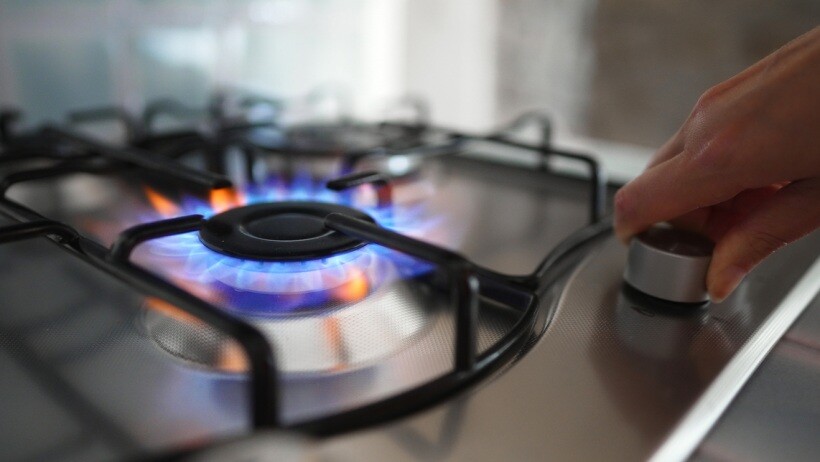
A gas range operates on natural gas or propane supplied through your home's gas line to instantly light up its burners. When you turn on the knob, gas flows and ignites, producing an immediate flame. This allows for quick adjustments in heat. You turn it higher for a rapid boil or lower for a slow simmer.
This level of precision and the ability to instantly modify heat levels is why many chefs and cooking lovers prefer it. Also, in case of power outages, a gas range can still be used, making it very useful when you can't use an electric stove.
What is an electric range?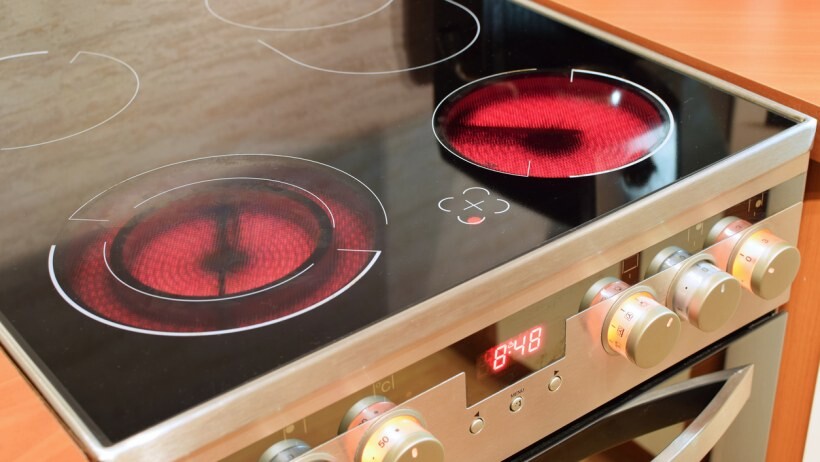
An electric range, often referred to as an electric kitchen stove, relies on electrical resistance to cook food. You won't find flames here. Instead, electric coils or a smooth, flat surface heats up at the touch of a button or turn of a knob.
One of the biggest perks of an electric range is even heating. The electric hob is known for distributing heat more evenly than gas, making it ideal for bakers and anyone who appreciates precision in their cooking.
Plus, cleaning is a breeze, especially if you've got a model with a smooth top. And, if you're all about keeping your energy usage in check, many electric ranges come with efficient settings that might just help shave a bit off your bills.
Gas range vs electric: Which is the better choice?
Choosing between an electric stove or gas stove for your kitchen can feel like picking a favourite recipe—it's not easy, and everyone's got their opinion. This comparison guide will simmer down the key factors like cost-effectiveness, cooking methods, and energy efficiency to help you make a decision.
In terms of cost
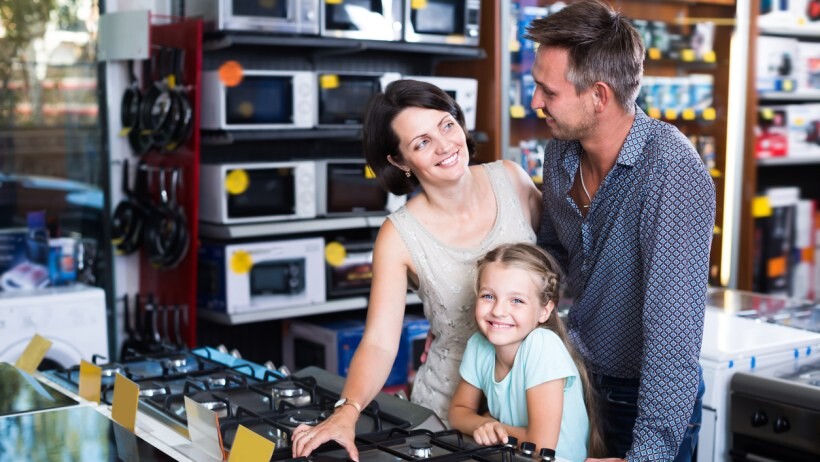
Your budget would significantly impact your considerations between gas and electric ranges. Basic electric ranges start at around $500, which is less than the $800 entry-level for gas options. If you’re on a tight budget, a basic electric range might be the way to go.
Electric stoves with induction hobs and fan-assisted ovens can cost from $1,000 to $2,500. Meanwhile, their gas counterparts, priced between $1,500 and $3,000, provide decent features that can cater to most cooking needs without breaking the bank.
Both electric and gas range prices can exceed $2,500. However, if you don’t need luxurious finishes and gourmet features, they won’t really be worth the money.
In terms of energy efficiency
When it comes to energy efficiency, an electric cooking stove has the edge. They convert almost all the electricity they consume directly into heat, with little to no waste. Inverter models are also available, which can save energy by adjusting the heating element's power according to your cooking needs.
So, gas or electric cooker, which is cheaper to run? Well, despite electric ranges being more efficient, gas variants often cost less to operate because natural gas prices tend to be lower than electricity rates. However, it's worth noting that they're not quite as good at evenly distributing heat across your cookware.
In terms of cooking performance
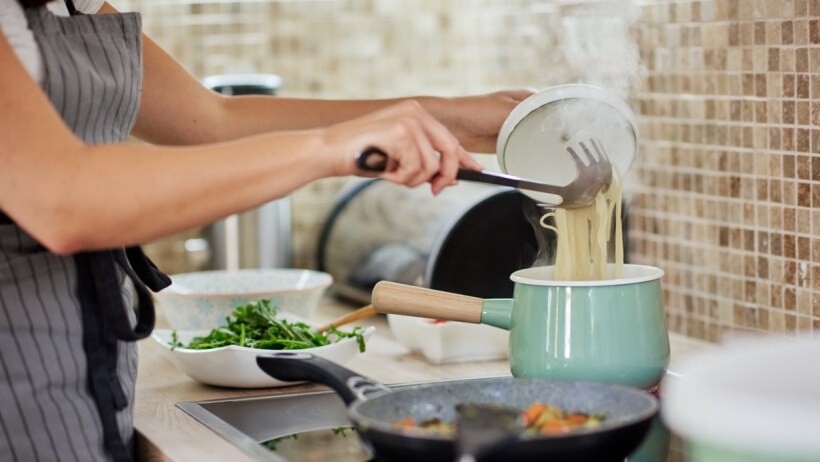
Each type of stove has its fans and detractors when it comes to cooking performance. Gas ranges offer instant heat and more precise temperature control, which is why many professional chefs prefer them. You can crank up the flame for a fierce boil or dial it down to a simmer in seconds.
On the flip side, electric cooking surfaces can respond slowly when you need to change temperatures quickly. That's a downside if you're trying to sear a steak and immediately want to lower the heat for a slow simmer.
However, they also tend to heat more evenly. That means your pancakes or grilled cheese sandwiches might come out more uniformly cooked with less risk of hot spots. Plus, electric stoves maintain low heat better, so they're ideal for dishes that need gentle, consistent warmth.
In terms of cooking methods
When cooking on an electric stove vs gas, it’s important to note that both types have distinctly different cooking styles and outcomes. With gas models, you'll find that they heat up faster and offer quicker preheat times. Meanwhile, cooking on an electric stove means dealing with a slower start.
The difference between the gas or electric oven appliances becomes apparent when broiling or roasting. A gas oven provides a more moist environment due to combustion. That's why it's great for high-heat cooking methods like searing, stir-frying, and wok cooking.
On the other hand, electric ovens excel in providing dry heat. This makes it perfect for light and gentle cooking methods like melting, simmering, baking, and broiling.
Stovetop cooking also has its nuances when comparing the two. Gas cooktops transfer heat via actual flame, while electric cooktops go through a heating element. That means the heat source on gas stoves is more direct, allowing for more control and precision in cooking. Electric cooktops, however, offer smoother, consistent cooking zones with no risk of flame flare-ups or uneven hot spots.
In terms of assembly and installation
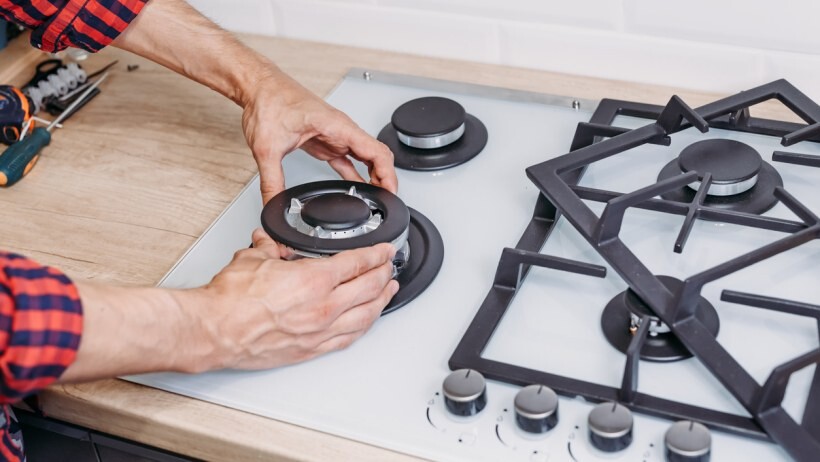
When it comes to the installation of these appliances, gas ranges often require a bit more effort than electric ones. You'll need a gas line in place, which might not be ideal if you’re avoiding the extra work or the high cost. It'll almost guarantee an overhaul, and it's wise to note that major kitchen renovations cost $10,000 to $50,000 in Australia.
Electric ranges, on the other hand, are pretty much ready to use as long as you’ve got the proper power outlet. They’re a breeze to install, making them a go-to for folks who want to keep things simple.
It’s worth considering your long-term convenience, too. With a gas range, you'll need to check on the gas connection now and then. Electric ranges don’t demand as much, giving you one less thing to worry about in your busy life.
In terms of safety
Regarding safety, gas ranges are a bit more to worry about. There's the risk of gas leaks, which can lead to fires or explosions if they're not caught in time. Plus, a 2018 study linked gas stoves to cases of childhood asthma in Australia.
On the flip side, electric ranges offer a sigh of relief. There's no gas to leak, which means a lower fire risk. You're also not shooting those pesky pollutants into your kitchen when you boil water.
However, you still have to watch out for electrical issues, which can lead to fires if your system's not up-to-code or the range is improperly installed. On your average cooking day, though, an electric range remains safer than a gas counterpart. This is especially true when you think about the long-term effects of those invisible harmful particles that come from gas on your health.
Ensure an expert range installation with Airtasker
Choosing between a gas and electric range requires evaluating your budget, safety considerations, and culinary preferences. Once you've made your decision, the next crucial step is to ensure your new appliance is installed properly.
Avoid the hassle and potential risks of DIY installation. With Airtasker, you can connect with skilled and experienced professionals specialising in appliance installation—and even the disassembly of your appliances if needed.
For those selecting a gas range, the platform can also help you find experts in gas oven installation and repair. If an electric range is more your style, there are local electricians available to manage all necessary wiring and connections.
Gas vs electric range
| Gas Range |
Electric Range |
|
| Cost |
Both the appliance and installation can be costly |
Generally cheaper, and there’s no need to pay for installation |
| Energy Efficiency |
Less efficient, but gas is cheaper to run |
More efficient, but higher electricity cost |
| Cooking Performance |
Instant heat; provides precise temperature control |
Slower heating time; provides even temperature across the cooking surface |
| Cooking Methods |
Perfect for high-heat cooking methods |
Perfect for gentle cooking methods |
| Assembly and Installation |
Requires gas line, professional installation |
Simpler setup |
| Safety |
Risk of gas leaks and indoor pollution |
Lower fire risk, no gas-related pollutants |
FAQs on gas and electric ranges
The main disadvantages include potential safety risks such as gas leaks, the cost of gas installation, and poor energy efficiency compared to electric ovens.
Yes, cooking with an electric range is healthy, especially as it eliminates the risk of indoor air pollution caused by burning gas. However, it's still important to follow proper cooking techniques and use a well-ventilated kitchen to avoid any potential health hazards.
Most chefs tend to prefer gas stoves for their instant heat control and ability to cook more evenly. It's also easier to see the flame and make adjustments as needed.
Find appliance installers, fast
Post a task
Related articles
Related price pages
